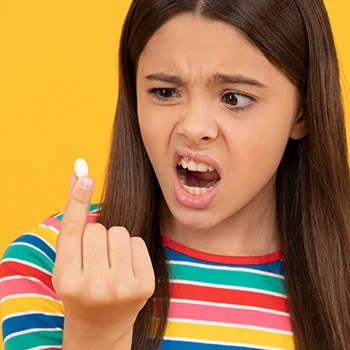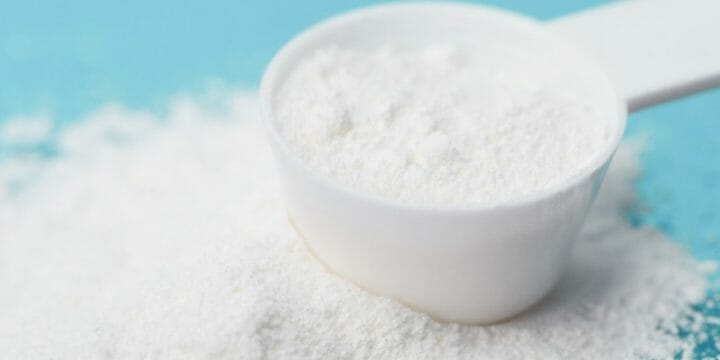As a doctor, I've been approached by many patients to advise them on the effects of pre-workout supplements for teens.
Taking a closer look at how pre-workout affect teenagers provides insights into their safety and effectiveness.
So, how can we incorporate dietary supplements into teen fitness routines while prioritizing their health?
With so many ads targeting young people, I delved into research to uncover the truth. Get ready for eye-opening revelations.
Quick Summary
- Pre-workouts can be safe for teenagers if they avoid products with banned compounds and consult a medical doctor.
- Parents should ensure the quality of the pre-workout product and be vigilant against potential misuse by their teens.
- Research has shown that consuming between 1.6 and 1.8 grams of protein per kilogram of body weight is ideal for increasing muscle size.
- In my experience, guiding teens toward understanding the importance of product quality and proper usage can prevent potential health risks.
Can Teenagers Take Pre-Workout Supplements?

Yes, teenagers can take certain pre-workout supplements that don’t contain banned compounds or high amounts of stimulants. If they do, parents need to watch out for two things:
- Quality of the product
- Potential misuse of dietary supplements
To be on the safer side, I recommend parents check our guide on the best pre-workout supplements for teens and buy only from trustworthy sources.
Quality of the Product
Many parents have expressed concerns about pre-workouts' quality. Firstly, the product should come from a reputable brand that manufactures high-quality products containing only natural and safe ingredients.
Secondly, parents need to read the ingredient list to ensure the product contains nothing potentially harmful (like allergens).
The supplement shouldn't contain artificial sweeteners or high amounts of caffeine and other harmful ingredients. If the teen ends up having caffeine sensitivity, it could cause them to start feeling tingly and jittery. Worse, they might not get a lot of sleep at night.
Parents need to make extra effort with this by talking to a physician and understanding the pros and cons of every ingredient in the supplement. This also applies to any other dietary supplements their young athletes may take.
If the product comes from a reputable brand and contains natural ingredients backed by science, it may be safe for teenagers to consume.
Related Articles:
- Is Creatine Safe For Teenagers
- Should Teens Take Testosterone Boosters
- Stim vs Non-Stim Pre-Workout (Which One Should You Take)
- Teenage Workout Plan
Potential Misuse

Teens can be impulsive, so parents should monitor pre-workout use.
I've observed some young athletes being too enthusiastic with their pre-workouts. After discussing it, we've started incorporating more education on proper dosages to prevent potential misuse.
There are two ways young athletes can misuse pre-workout: overdosing and dry-scooping.
A teenager might think that two would be better if one scoop of pre-workout gives them more energy.
Parents and coaches must explain the dangers of overdosing on pre-workouts to their young athletes.
Two Potential Issues
While researching supplement usage in young individuals, I found two main potential issues that parents must consider when giving them pre-workouts:
- Physical Development: The adolescent body is still developing. Supplements with stimulants can affect this process.
- Adverse Reactions: Teenagers might be more susceptible to side effects from supplements, like caffeine-related sleep issues.
The second way a teen could misuse pre-workout is by dry-scooping.
Dry-scooping is when you consume pre-workout powder without water or any liquids. I’ve noticed this trend with young lifters, and it’s a choking hazard waiting to happen. Tell your teens to avoid doing this at all costs.

Why Would a Teenager Need It?
A teenager might need some form of pre-workout to build muscle and strength, improve athletic endurance, achieve their fitness goals, and do well in any sports they compete in.
Although these products are not required for them, and most teens can perfectly go without them, sometimes, a teenager might need an extra boost to throw harder, run faster, and jump higher.
A pre-workout formula might give them more energy before a workout, allowing them to train more effectively and achieve their athletic goals.
What Are Some Alternatives for Teens?

After brainstorming with my team, we've often recommended natural teenager-friendly protein powder alternatives. The feedback from parents has been overwhelmingly positive, appreciating the safer approach for their young athletes.
Let's find out how they work as pre-workout alternatives.
Pre-Workout Meals
Pre-workout meals are great for boosting your energy levels before a workout.
Teens who want to build muscle and improve endurance with resistance training should eat protein-rich foods [1]. Foods such as fish, poultry, eggs, beans, lentils, and nuts are excellent protein sources [2].
Research has shown that consuming 1.6 and 1.8 grams of protein per kilogram of body weight is ideal for increasing muscle size [3].
Teens who simply want enough energy to push through other workouts should focus on consuming enough carbs before exercising. Complex carbs are one of the best sources of slow and longer-term energy — enough to fuel young athletes through a grueling workout.
Eat at least one to two hours before your workout so you don't experience the discomfort of exercising on a full stomach.
Teen-Friendly Protein Supplements

Several studies back up the relationship between pre-workout protein consumption and better performance.
Consuming protein before exercise can increase muscle-protein synthesis [4].
It can also improve your muscles' anabolic response (the difference between net protein synthesis and breakdown) [5].
Other benefits of taking a protein powder as a pre-workout include:
“For teens, or anyone who is looking to protein powder as a supplement in their diet, they should look for and choose protein powders that have been tested by third parties. A third-party testing allows us to verify that the supplement contains what it advertises.”
- Dr. Eleanor Baker MS, LDN, RDN, Dietician
Difference Between Supplements & Whole Foods
Whole foods are the original way to provide nutrients for our bodies. Understanding the differences between whole foods and supplements is essential to avoid overdoses and teen health issues.
The three main differences are:
- Nutritional Complexity: Whole foods offer a variety of nutrients that supplements can't replicate. For instance, an orange provides vitamin C, fiber, potassium, and other antioxidants.
- Nutrient Absorption: Nutrients from whole foods are absorbed more slowly, benefiting energy during exercise.
- Overdose Risk: With whole foods, the risk of nutrient overdose is lower. With supplements, it's easy to exceed recommended doses.
FAQs
Is Taking Pre-workout Safe for Teenagers?
Yes, taking pre-workout powders can be safe for teenagers. The best products for teenagers contain comparatively smaller amounts of caffeine, BCAAs, beta-alanine, and creatine monohydrate.
Should Teenagers Avoid Taking Any Dietary Supplements?
No, teenagers should not avoid taking any dietary supplements. But, all the ingredients in the supplements they consume should be natural, safe, and backed by science.
At What Age Is It Safest To Take Pre-Workout?
The safest age to take pre-workout is after 18 years. However, muscle mass, pre-workout quality, and caffeine intake can influence this.
What Pre-Workout Ingredients Should Teenagers Avoid?
Teenagers should avoid pre-workouts with artificial sweeteners, high-caffeine content, and artificial coloring. They should avoid any pre-workout that does not contain science-backed ingredients.
References:
- https://www.medicalnewstoday.com/articles/322963#carbohydrates
- https://www.hsph.harvard.edu/nutritionsource/what-should-you-eat/protein/
- https://www.ncbi.nlm.nih.gov/pmc/articles/PMC2129168/
- https://pubmed.ncbi.nlm.nih.gov/11440894/
- https://pubmed.ncbi.nlm.nih.gov/16896166/
- https://pubmed.ncbi.nlm.nih.gov/17095924/
- https://www.ncbi.nlm.nih.gov/pubmed/17701421
- https://pubmed.ncbi.nlm.nih.gov/16988909/
- https://www.ncbi.nlm.nih.gov/pubmed/17095924
About The Author
You May Also Like






